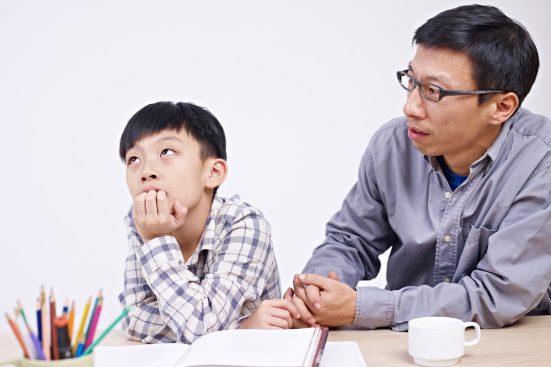1. Knowing our children: It is important for us to be aware of our children’s strengths, challenges, thoughts and struggles.
Spending time with children: Research suggests the sheer quantity of time is not important – but quality time (time where children feel heard, time when there is learning, listening or connection and often when there is a 1:1 ratio) is important to outcomes in childhood. “Quality” time looks different for different families.
Asking questions and showing interest also helps us know children. NOT just questions about facts or “what happened?” but also about opinions, feelings, interests – and don’t forget “what is working/going well/positive”
- What would you do in this situation?
- What is your opinion about that? What do you think works best/worst? How did you know that?
- Did you feel hurt/sad/worried/excited/optimistic today?
- How is that game/book/show going?
- Who was kind to you today?
- What did you do to get better at this? What don’t I understand?
2. Actively teach communication skills and social skills
It is helpful for us to explicitly teach children social skills, for example to:
- Initiate interaction, conversation and social contact/play
- Respond positively to others when they initiate this
- Start to ask questions and show interest in others
- Show positive emotion around and to others
- Be able to take some steps to resolve conflict
- Express opinions and needs/desires assertively and appropriately
Talk about (their and our) social interactions:
- I managed this today by…
- How did you sort that out?
- Who acts in a friendly and less than friendly way in your class? What friendship skills are you good at?
Teach specific skills, not “nag”: ie Instead of “Don’t be so bossy” practice saying “I would like to do this, let’s take turns” Instead of “Need to be more social” try asking a friend one question each day Instead of “Unassertive” ask if they can raise their hand to say “I think…” once a week in class
Help children rehearse and practice skills: Before or after the situation have them practice with you, for example:
- What questions can you ask your friends today?
- Please say that again in a calm and slower voice
- Please try resolving/sorting out that issue in front of me, I will help
- Please try telling me that in an assertive way
3. Help them manage difficult emotions
We can help children learn to better express, manage and resolve negative emotions by:
Talking and asking about emotions:
- Did you have any times today where you felt worried /embarrassed /excited/ interested?
- I think in that situation, I probably would have felt… because…
- I wonder what kind of feelings X had when that happened to them? I felt X today when Y.
Responding to negative emotions by resisting “quick fix/cheer up/”stop feeling” messages and instead recognizing emotion/showing empathy (at least some of the time, and at least briefly):
- I’m sorry you felt…
- I can see you are feeling….
- That sounds tough….
- I’m sorry you are experiencing that….
- Gosh, that’s a lot to manage
Teaching children specific strategies to deal with negative emotions:
- Using language and calm sentences
- Using physical relaxation/slow breathing techniques
- Teaching “distraction/attention redirection” techniques
- Teaching children to get social validation/help from others/connection with others
- Teaching them to use brave and engaged behaviour in the face of negative emotion
4. Support key Learning Attitudes and Skills
We can support children’s learning at school by:
Teaching them it is possible to learn, grow and develop skills:
- Our brains are growing all the time
- I can see that you are growing and changing
- Our brains grow when we think hard
Helping them set learning goals:
- What are you most interested in?
- What would you like to learn/get better at today/this week/this term.
- What do you need to find out about to do that better?
Learn to manage to tolerate “learning related” pain:
- It’s normal to feel bored/tired/stuck/a little worried about homework/learning/school work at times
- How can I help you feel better about/cope with that?
Notice their own progress/focus on their learning not others:
- We are all different
- Not everyone can do everything well
- What are your strengths?
- How have you improved this year/since then?
5. Providing warmth and connection
Parental-child connection is vital for learning and emotional well being outcomes in children. This does not mean a lack of rules or expectations (parenting which is warm, but lacking in any demands/rules/expectations is associated with poorer outcomes for children). We can provide warmth and connection to children by:
Using physical touch/affection:
- high fives
- massage
- hugs
Using praise (noticing what is going well):
- Specific behavior (what they did, not what happened)and Helping them notice the positive outcomes for themselves.
- You looked at the ball everytime, so you always caught it!,
- You spoke to your friends so kindly today, I bet they will want to come back,
- You used such expression in your reader, it made it fun for me to listen to,
- I really liked how you took turns to play with your friend, he must like playing with you.
Unconditional positive regard (showing enjoyment, expressing admiration, expressing belief in change):
- How great to see you
- I am interested in your opinion
- I know you are trying
- I’ve missed you
- I can see how much you are growing
- I had fun talking with you today
- I love you
5. Being Kind to Yourself
At times parenting can be exhausting, sad, hurtful, scary, disappointing, frustrating and tedious. It is important to take care of ourselves. This means:
Noticing our strengths and progress:
- I’m working hard
- I do this well
- I managed that better
Being patient with our challenges:
- Parenting is a marathon not a sprint
- I’m going to just focus on this one thing for now
- This is going to take time
Talking back to “blame” and guilt:
- All children make mistakes, “misbehave” and have hard times
- At least 50% of outcomes for my child are outside my direct control
- This is their journey



